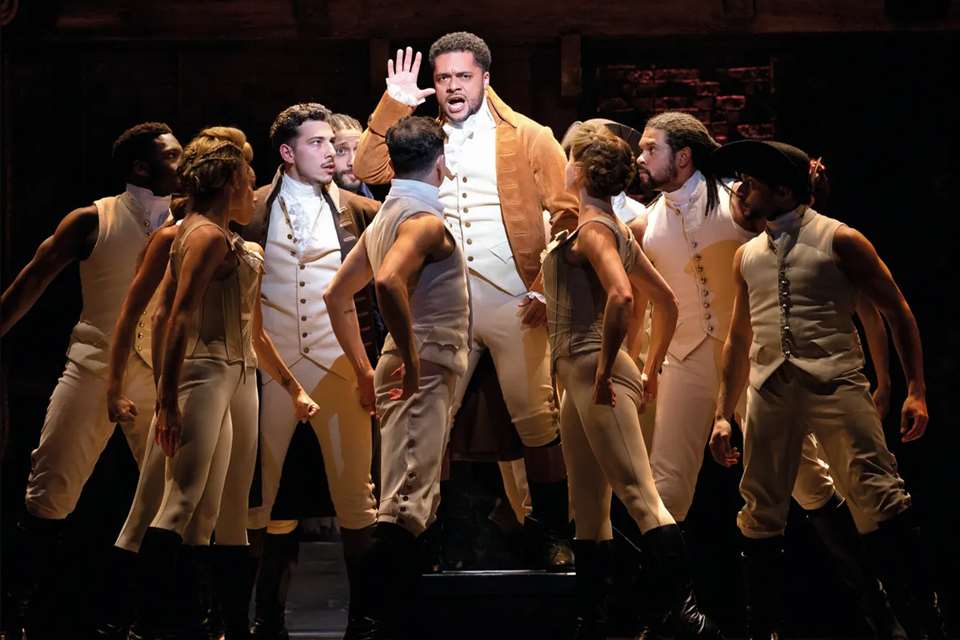Learning about laughter: The Comedy School
Nick Smurthwaite
Friday, September 1, 2023
Comedy can be one of the most difficult artforms to master, but Nick Smurthwaite visits the Comedy School to find out how it is enhancing the lives of local communities through laughter-based learning.

The Comedy School
It is often said that stand-up comedy is the most nerve-wracking of all the performance arts. It's perhaps surprising then, that many still want to give it a go. Keith Palmer was one such person, who started out doing community outreach work with the National Youth Theatre and then trained as an actor. Disillusioned by acting in his mid-twenties, he tried doing a few comedy gigs – but soon realised it was more difficult than it appeared. ‘I looked around for somewhere I could learn how to do stand-up and there wasn't anywhere,’ he says. ‘The BBC did comedy masterclasses but you had to be earning a lot of money to be able to afford them.’ The other thing he noticed was that there weren't any black or Asian people doing comedy. ‘If you had asked anyone to name a black comedian in the 1980s, the only name they could come up with was Lenny Henry.’
The start line
Being an entrepreneurial kind of guy, Palmer decided to put on some comedy workshops and cabaret nights in Stratford East aimed at attracting BAME talent. One of his early bookings was a double act called The Secret Asian, featuring Nitin Sawhney and Sanjeev Bhaskar. ‘I decided I’d rather be in control of my own destiny, instead of waiting for someone to decide if I was good enough to be in their company,’ he explains. ‘There were no role models or career paths for black and Asian kids in the eighties, so setting up The Comedy School was part of improving opportunities and access to the industry.’
The comedy workshops quickly gathered interest from individuals and organisations alike. Soon enough, he was being invited to do workshops in prisons and schools, using comedy as an educational tool for literacy and rehabilitation. One of these workshops, ‘It's No Joke’, was originally intended as a six-month project targeting the capital's knife crime epidemic, but is still going strong 20 years later. ‘It should never have lasted this long but the issue has got worse, not better. At first, we worked with secondary school pupils, but now we're going into primary schools. In our shows we make sure they understand the law and the consequences of knife way, but in a comedic way.’
Funny business
In 2016, Palmer launched the Comedy School Wellbeing Project in partnership with SLAM (South London and Maudsley Recovery College and SHARP (Social Inclusion, Hope and Recovery Project), the aim being to improve people's mental health and wellbeing through comedy.
Can anyone really learn to be professionally funny? Isn't comedy a particular gift conferred on a very small number of people? Palmer believes everyone – or nearly everyone – has the capability of evoking laughter. ‘If you have any kind of sense of humour, you can probably replicate that in being funny to others,’ he says. ‘All we ask of people is that they show a willingness to learn in a creative environment, and be prepared to make mistakes. A lot of people who come to us are fearful to begin with, so it's about changing that mindset in a safe environment.’ He continues, ‘You can have great material but if you can't deliver it, it's not going to work. In our workshops you get a chance to prepare the material, to practice your delivery, and to act like a professional. If you look like you don't know what you're doing, the audience will get nervous for you. In stand-up you must come across with confidence, even to the point of being cocky. After a time, you get to find your true comic voice, whether it's quirky, observational, political or whatever. That's what makes each stand-up unique.’
Recipe for success
Palmer says the three must-haves for a successful stand-up are persistence, resilience and self-awareness. In the 25 years since the Comedy School started, he reckons about 30% of its intake has gone on to some kind of career in show business. Notable alumni include Judy Love, Axel Blake, Zane Baptiste, Zakir Khan, Jeff Innocent and Jimmy Akingbola.
Palmer is excited about the future for the Comedy School, which now offers a whole range of different disciplines. In terms of funding, the school is supported by the National Lottery Community Fund, various private trusts and foundations, and a thriving community of patrons and associates. Comedians Lenny Henry, Paul Whitehouse, Phil Jupitus and the late Sean Lock all supported the school in the past. The school has also branched out into corporate presentation and teambuilding workshops. Palmer has made it his life's work to prove that comedy can be useful as well as therapeutic. ‘Everybody likes to laugh,’ he says. ‘If people are laughing, they're listening and probably more receptive to taking information on board.”





